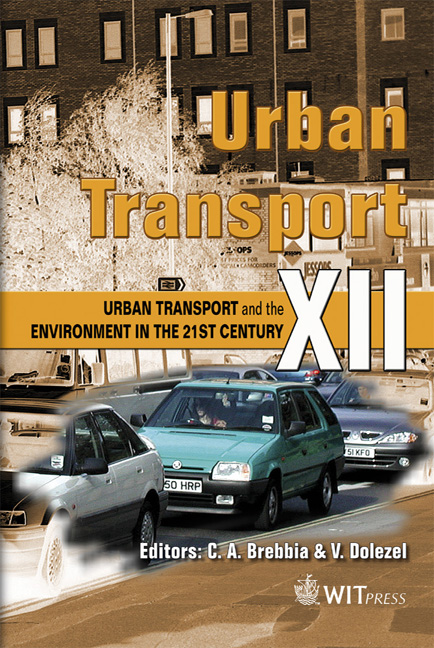Bi-level Optimal Toll Design Problem Solved By The Inverse Stackelberg Games Approach
Price
Free (open access)
Transaction
Volume
89
Pages
9
Published
2006
Size
625 kb
Paper DOI
10.2495/UT060841
Copyright
WIT Press
Author(s)
K. Staˇnkov´a, G. J. Olsder & M. Bliemer
Abstract
We consider the special type of Stackelberg games known as inverse (or reverse) Stackelberg games and their application to the problem of bi-level optimal toll design in road traffic systems. On a given strongly connected network we assume a noncooperative game with two levels of players: the road authority as a leader and travelers as followers.We consider the road authority with two possible objectives: It either tries to maximize the total toll revenue or to minimize the total travel time of the network by setting tolls on tollable links, while the travelers minimize their travel costs by choosing their travel behavior. In the analysis of traffic systems, link-travel times are modeled as link performance functions, relating travel time to the volume of traffic on the link. These functions are typically smooth, nonlinear, positive, and strictly increasing with link flow. We define link tolls as functions of one or more link flows of the network. Starting from small networks with several origin-destination pairs we analytically find the optimal toll functions for the road authority with the lower level defined by the deterministic user-equilibrium model. The main contributions of this paper are the application of the new field of inverse Stackelberg games in traffic problems and finding the solution to these problems analytically. To define the toll as a function of the link flows seems to be very practical and can help to solve, for example, the congestion problems in densely populated areas. Keywords: Stackelberg games, inverse Stackelberg games, bi-level optimal toll design problem, deterministic (Wardrop) user equilibrium.
Keywords
Stackelberg games, inverse Stackelberg games, bi-level optimal toll design problem, deterministic (Wardrop) user equilibrium.





